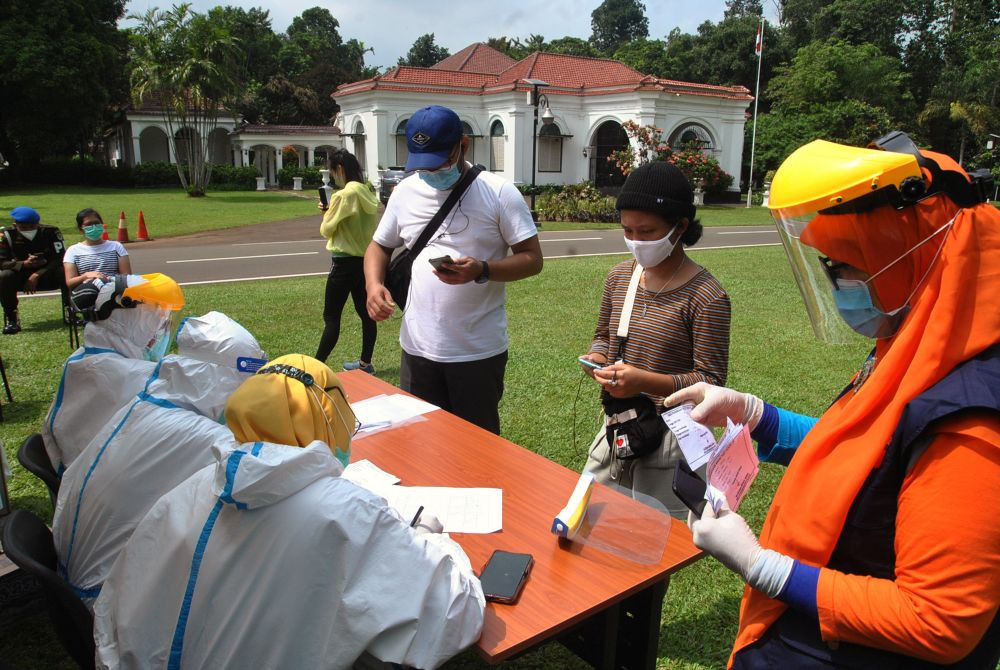Some Indonesians still believe COVID-19 a conspiracy—survey

Visitors take COVID-19 rapid tests provided by the Bogor City Health Agency at the Bogor Botanical Garden in West Java on Nov. 1. (Antara/Arif Firmansyah via The Jakarta Post/Asia News Network)
JAKARTA — Some Greater Jakarta residents still believe that the COVID-19 pandemic is “a conspiracy formulated by the global elites”, scholars from the University of Indonesia (UI) have revealed.
The scholars, who are members of the Cluster Innovation and Governance (CIGO) Research Team, collaborated with Tanoto Foundation for a survey to study how the COVID-19 pandemic has affected the public in terms of their stance toward the economic recession, as well as their buying habits throughout the health crisis.
The survey was conducted from Sept. 14 to 30 with 772 respondents from Greater Jakarta.
UI spokeswoman Amelita Luisa said the results showed that 21 percent of the respondents, or 150 people, believed that COVID-19 was a conspiracy created by members of the global elite.
“Most are from Bogor [West Java], or 24.1 percent, and from Jakarta, or 22.5 percent,” she said on Friday as quoted by kompas.com.
Article continues after this advertisementShe went on to say that most of the respondents who believed in the COVID-19 conspiracy hoax were aged between 25 and 40 years, had a junior high school or high school level education, and a monthly expenditure of around Rp 2.5 million (US$175).
Article continues after this advertisement“This research also found that most of these respondents believed that the disease was only dangerous for senior citizens and people with underlying conditions,” Amelita said.
The study also revealed that some respondents still did not know how to wear a mask properly, though they were aware that they had to comply with health protocols.
“We recommend that the government intensify its surveillance policy, such as tracing, testing and treatment considering, that Indonesia continues to record an increasing number of new COVID-19 cases every day,” said research leader Eko Sakapurnama.
The survey also showed that during the epidemic so far, respondents spent more on food and less on the secondary and tertiary sectors, which include traveling, transportation, automotive and jewelry.
Meanwhile, Indonesia recorded over 4,000 new COVID-19 cases on two days in the past week: on Thursday with 4,065 cases and on Saturday with 4,262 cases.
As of Saturday, the country has recorded 433,386 confirmed cases, which include 364,417 recoveries and 14,540 fatalities.
Meanwhile, data shared by the national COVID-19 task force shows that many vacationers neglected health protocols during a recent long weekend and as the country entered the eighth month of the pandemic.
The task force’s data and information technology head, Dewi Nur Aisyah, said in a virtual press conference on Wednesday that it had received more reports of health protocol violations during the long weekend from Oct. 28 to Nov. 1 compared to normal days.
The reports were submitted by field officers, which comprise the Indonesian Military (TNI), the National Police and Public Order Agency (Satpol PP), in 407 regencies and cities as well as each of the 34 provinces.
Based on the data, about 600,000 health protocol violations were recorded at tourist spots during the extended break.